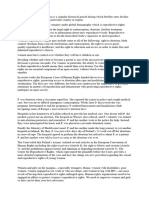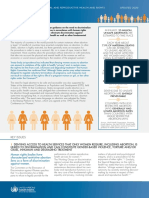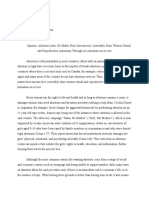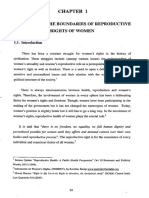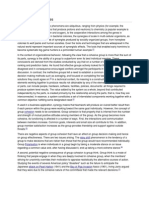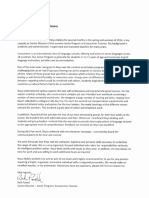0% found this document useful (0 votes)
4 views7 pagesThe Euro Chronicle: Sweden Boosts Global SRHR Efforts With Major Investment
Sweden has pledged SEK 4.3 billion over five years to enhance global sexual and reproductive health and rights, focusing on areas with critical needs. Meanwhile, Germany is considering reforms to decriminalize abortion within the first trimester, reflecting a growing public demand for reproductive freedom. The editorial emphasizes that access to reproductive healthcare is a fundamental human right, essential for individual autonomy and societal well-being.
Uploaded by
elivertulfoCopyright
© © All Rights Reserved
We take content rights seriously. If you suspect this is your content, claim it here.
Available Formats
Download as PDF, TXT or read online on Scribd
0% found this document useful (0 votes)
4 views7 pagesThe Euro Chronicle: Sweden Boosts Global SRHR Efforts With Major Investment
Sweden has pledged SEK 4.3 billion over five years to enhance global sexual and reproductive health and rights, focusing on areas with critical needs. Meanwhile, Germany is considering reforms to decriminalize abortion within the first trimester, reflecting a growing public demand for reproductive freedom. The editorial emphasizes that access to reproductive healthcare is a fundamental human right, essential for individual autonomy and societal well-being.
Uploaded by
elivertulfoCopyright
© © All Rights Reserved
We take content rights seriously. If you suspect this is your content, claim it here.
Available Formats
Download as PDF, TXT or read online on Scribd
/ 7










